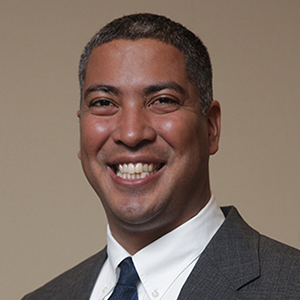Opening the doors to the Invisible College
The Invisible College, a network of successful scientists working to help each other and mentor the next generation of investigators, has been in operation for centuries, serving to promulgate and advance the frontiers of science. Given the low numbers of underrepresented minorities in the biomedical research workforce, is it possible to usher a new generation of scientists into the Invisible College in order to accurately reflect the population demographics of the United States?
 I first encountered the Invisible College as a student, having been fortunate to find a mentor who encouraged me to pursue my doctoral degree in the biomedical sciences.
I first encountered the Invisible College as a student, having been fortunate to find a mentor who encouraged me to pursue my doctoral degree in the biomedical sciences.
He spent an inordinate amount of time guiding me, always allowing me to make mistakes and helping me to learn from them. As the first individual in my entire extended family to attend college, I was perplexed upon receiving his generosity.
One day when my mentor and I were working on a manuscript, I looked up from my laptop and stared into his eyes. “Why are you helping me?” I asked.
The question took him by surprise, and he remained silent for a few moments. He leaned back in his chair and grumbled in his customary manner. Then a smile surfaced on his countenance as he stared back at me with equal intensity.
“When I was a student, I had similar circumstances,” he said “Someone mentored me, which laid the foundation for my success. Hence, I am part of a continuum of scientists helping the next generation. You are entering into this Invisible College, and you are charged to help others.”
I was floored by his response. This was the moment in our mentor-mentee relationship in which I felt that I was part of something bigger than myself. From that day forth, I stopped doubting whether I was capable or smart enough to earn a doctorate. Every academic challenge became an opportunity to persevere and share the lessons I learned with younger mentees. I unearthed the key to success in the biomedical sciences, which is to place one foot in front of the other and connect with as many members of the Invisible College as possible. I continued along the trajectory, mentoring others and catalyzing their entry into this perennial stream.
I am honored to serve as executive director for the National Research Mentoring Network, which has laid the infrastructure for thousands of mentees to gain access to the Invisible College by linking with its members, promoting diversity and continuing the advancement of biomedical research in the U.S. We achieve this through strategic synergies among five NRMN cores: the administrative core at Boston College, the mentor training core at the University of Wisconsin-Madison, the mentorship and networking core at the University of North Texas Health Science Center, the professional development core at the University of Minnesota, and the research resources and outreach core at the Morehouse School of Medicine.
The American Society for Biochemistry and Molecular Biology is an NRMN scientific society partner, which entails building awareness of NRMN and the National Institutes of Health's Diversity Program Consortium's offerings among ASBMB members, collaborating to deliver NRMN and DPC programs and workshops, and supporting advancement of diverse and inclusive biomedical researchers and scholars.
NRMN opens the doors of the Invisible College not for the select few but for all. Learn more and become a member at nrmnet.net.
Enjoy reading ASBMB Today?
Become a member to receive the print edition four times a year and the digital edition monthly.
Learn moreFeatured jobs
from the ASBMB career center
Get the latest from ASBMB Today
Enter your email address, and we’ll send you a weekly email with recent articles, interviews and more.
Latest in Careers
Careers highlights or most popular articles

Sketching, scribbling and scicomm
Graduate student Ari Paiz describes how her love of science and art blend to make her an effective science communicator.

Embrace your neurodivergence and flourish in college
This guide offers practical advice on setting yourself up for success — learn how to leverage campus resources, work with professors and embrace your strengths.

Upcoming opportunities
Apply for the ASBMB Interactive Mentoring Activities for Grantsmanship Enhancement grant writing workshop by April 15.

Quieting the static: Building inclusive STEM classrooms
Christin Monroe, an assistant professor of chemistry at Landmark College, offers practical tips to help educators make their classrooms more accessible to neurodivergent scientists.

Unraveling oncogenesis: What makes cancer tick?
Learn about the ASBMB 2025 symposium on oncogenic hubs: chromatin regulatory and transcriptional complexes in cancer.

Exploring lipid metabolism: A journey through time and innovation
Recent lipid metabolism research has unveiled critical insights into lipid–protein interactions, offering potential therapeutic targets for metabolic and neurodegenerative diseases. Check out the latest in lipid science at the ASBMB annual meeting.

